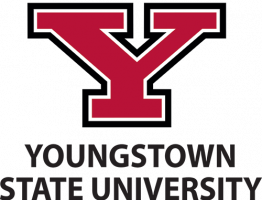Youngstown State: Communicating With Dual Credit Students

The College Credit Plus (CCP) program at Youngstown State University uses Signal Vine to improve communication with dual credit students enrolled in the University’s dual credit program. Faced with rapid growth and ballooning costs, Youngstown State University (YSU) implemented Signal Vine to streamline communications and improve its service to dual credit students.
Challenges
High school students enrolled in the CCP program tend to be highly motivated and highly likely to graduate college – exactly the type of student YSU wants to enroll full-time. However, YSU staff have limited opportunities to connect directly with students and build relationships that encourage CCP students to enroll at YSU after high school. This became even more difficult as the program quickly expanded from 56 students in 2006 to 1,400 students in 2016. The CCP program suffered in that decade due to three primary challenges:
- Capacity. Despite the rapid growth of CCP, no additional staff were hired to administer the program.
- Costs. Communicating with so many students was getting expensive. As costs rose, program outcomes did not.
- Outcomes. YSU staff were unable to develop meaningful relationships with students, so students had one less reason to enroll full-time at the university.
Implementation
To address these challenges, YSU needed a better way to scale personal communications. They accomplished this by implementing Signal Vine. The CCP application form added a new mandatory field to collect students’ cell phone numbers. CCP administrators then designed a program of text messages scheduled around key deadlines to keep students on track.
The timing of the messages is based on a “just in time” approach: not so far from the deadline that students forget, and not so close to the deadline that students are overwhelmed. Many students text back when they have questions or need help. Academic advisors at YSU respond to students in their caseloads on a one-on-one basis. Scheduled text messages often prompt students to respond, which helps academic advisors know which students need extra help. For example, YSU texts students, “Are you doing well in your spring dual enrollment class?” Students who respond “No” are targeted for additional support.
Results
Nearly 90% of students in the CCP program engage with academic advisors through text messages. Compared to the few students who read and respond to program emails, this marks a huge improvement in student-staff communications. Many students and academic advisors use text messaging to schedule and change advising appointments. As a result, CCP advisors measure a 19% increase in the number of advising appointments kept. Texting makes it easier for staff to reach remote students with important information and to meet with students for in-person support.
The CCP program thus reported an increase in the program’s efficiency after only one year of text messaging. Students and YSU staff communicate more frequently and are able to build stronger relationships now that they text. In the program’s first year of using Signal Vine, more CCP high school students enrolled at YSU in 2015 than in any other year. Youngstown State University uses Signal Vine to expand reach and nudge students in other departments as well. The CCP program is more powerful and cost-efficient as a direct result of text messaging.


It’s actually the best part of my day as an administrator, because I get to interact with real students and help them get what they need.
Similar Customers
Communicating effectively with your campus communities is of paramount importance right now
If you’d like to learn how Signal Vine can help, please join us for a demo.

